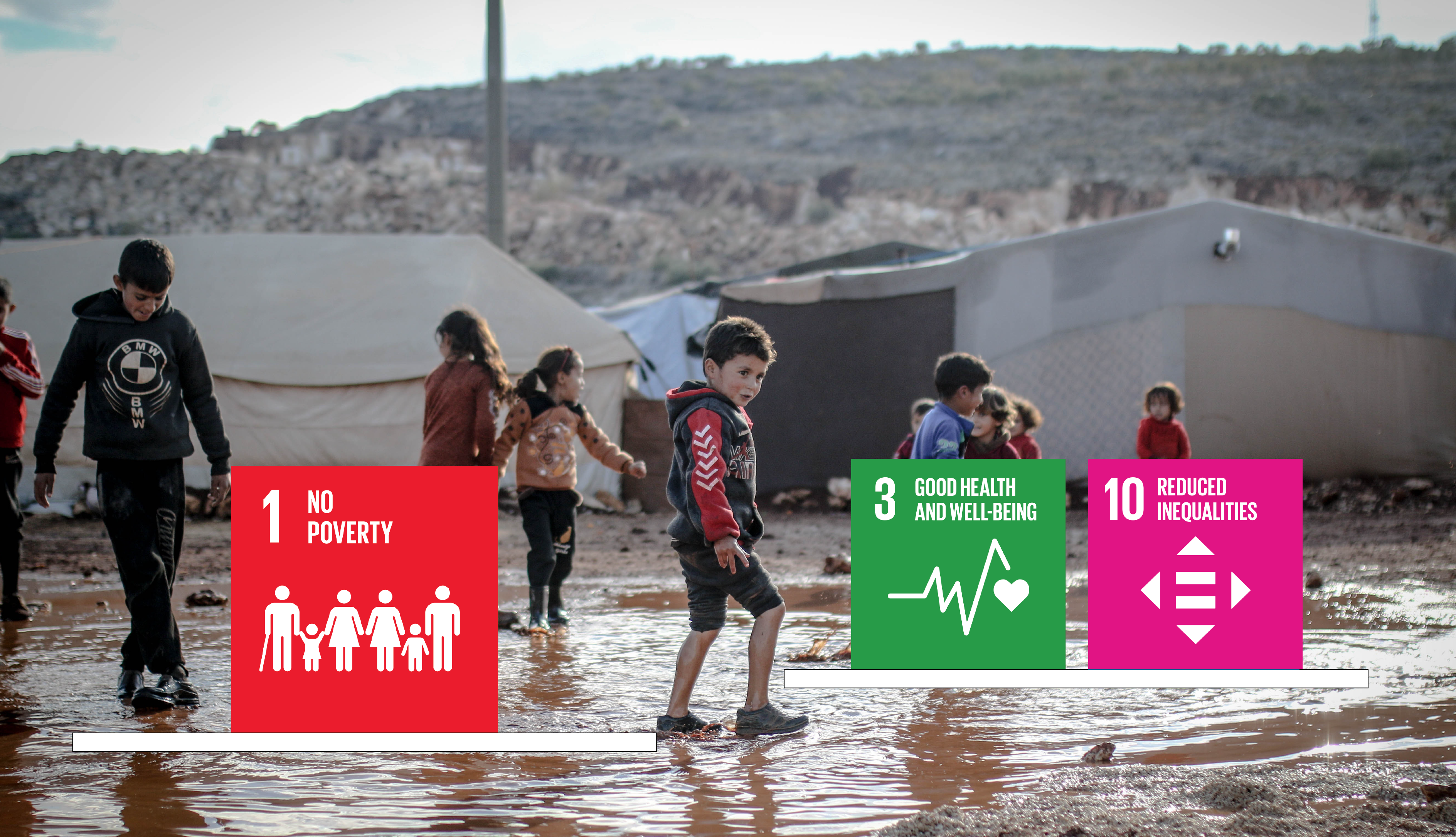COURSE DESCRIPTION
How to identify affects of poverty and inequality on health in a global and local aspect? How to contribute as individuals to a world with less poverty and reduced inequalities?
Primary SDGs 1 and 3 and 10
SDG 1– End poverty in all its forms everywhere
SDG 10– Reduce inequality within and among countries
SDG 3– Ensure healthy lives and promote well-being for all at all ages
Problem Based Learning Methodology
1. Problematize to raise the analysis.
2. Group work on data collection, analysis, and presentations.
3. Dialogue with local interest groups and volunteering activities during individual classrooms.
PROBLEM STATEMENT
It is a global fact that inequalities in income and wealth are severe. Having a look at the poorest half of our world’s population (e.g. by “walking on” Dollarstreet) we will recognize that poverty and inequalities do not only have material effects, but also deteriorate the status of health and well-being. We will also see that poverty and inequality often create a vicious circle within generations – and that money is not the only remedy to break the circle.
Working questions:
- What is the importance of the SDGs?
- What are the aims of SDGs 1, 3 and 10?
- What do we mean by poverty, wealth and inequality?
- What is the status on poverty and inequality in our countries?
- What is the link between poverty/inequality and living standards in health?
- What types of welfare models are there and what is their impact on poverty, inequality and health?
- How do poor and wealthy people live in different countries?
- Which ways into or out of poverty can students imagine?
- Which possibilities are there in our neighborhood to fight poverty and inequality?
- How can students as individuals contribute to a world with less poverty and reduced inequalities?
SHARED CLASSROOM
The activities can be divided in different shared and individual sessions.
Sessions
Module 1: Basic approach
- Introduction to UN and SDGs
- Introduction to project and working plan
Module 2: Establishing contact
- Elaboration of video-presentations of school, class, country and environment
- Ice-breaker activity (Stereotypes)
Module 3: Getting in touch with “our” SDGs
- Work in expert groups on the chose three SDGS:
- research work on SDG status, aims and importance
- presentation for other expert groups
Module 4: Definition and status of poverty, inequality and health
- Post-it wall with personal, non-academic definitions
- Research work on academic definitions, affected groups and effects on health
- Presentations on country’s status for partner
Module 5: Welfare models
- Comparison of welfare models in students’ countries
- Impact of welfare models on poverty, inequality and health
Module 6: Ways into and out of poverty
- Visualize stories for characters to slip into or find a way out of poverty
- Dollarstreet: Explore real-life-families’ living standards and circumstances
- School exhibition
Module 7: Move to action – getting local
- Get in contact with local actions and organizations
- Prepare and carry out volunteering activities
- Exchange of results
The class can be divided in mixed working groups from both countries or only from their own.
Lessons:
Shared Classroom 9
Individual Classroom 10
Technology needed:
- Internet connection
- A device to connect, a pc, cellphones or tablet
- Each participant has his/her own device and headphones if possible
LEARNING OUTCOMES
During the project, the students can develop different kinds of products:
- Videos (mysimpleshow) based on character cards
- Powerpoint presentations
- Post-it wall or other types of school exhibitions
- Summary document with recommendations for action
- Local action, e.g. coat stand, flea market, take-away-library with used (school) books
For the full Teaching module click on the green button above.
Course Features
- Lectures

